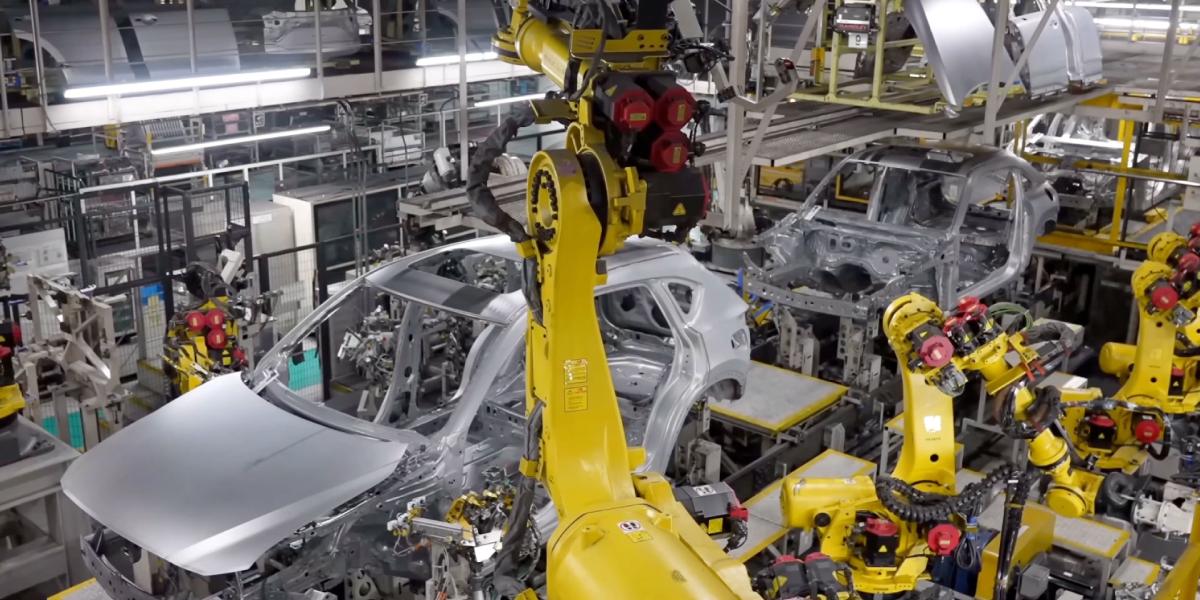At the end of 2024, Mexico reached the highest production and export of light vehicles in its entire history, including electric and hybrid units, approaching the level of 4 million units, with the United States as the first market, capturing 80% of the cars. manufactured in the country.
According to Inegi figures, automotive companies produced 3 million 989,403 units, surpassing the previous record established in 2017, when 3 million 933,154 units were assembled.
Regarding the year 2023, the manufacturing of light cars during 2024 represents annual growth of 5.6%, where the manufacturing of electric cars from General Motors and Stellantis and the hybrid from Toyota were integrated.
Also, car exports achieved the best year in their history, with 3 million 479,086 units, against the 3 million 451,157 cars reached in 2018 (whose figure was the previous historical record).
When compared to 2023, exports by the automotive industry represent an increase of 5.4%, when 3,300,876 cars were shipped.
“These data reaffirm the strength of the Mexican automotive industry, which is consolidating internationally as a key player in the production and export of light vehicles. This performance confirms the strategic role of the industry in the national economy, being one of the main generators of well-paid jobs, the main attractor of foreign direct investment and a significant contributor to the Gross Domestic Product (GDP),” highlighted Rogelio Garza, president of the Mexican Association of the Automotive Industry (AMIA).
Of the total imports from the United States, 18% of the cars come from Mexican manufacturing, which consolidates the relationship with the neighboring country to the north, since it is the same automakers in North America who have promoted the growth.
General Motors consolidated its first place as the largest car producer in Mexico with 889,072 units, including its electric models, which represents 23% compared to the previous year.
Of the total light vehicle production in 2024 (3,989,403 units), the industry manufactured 169,929 electric and hybrid cars, of which 94,767 units were assembled by General Motors with two models such as Chevrolet Blazer EV and Equinox EV; in addition to 53,904 from Ford with its Mustang Mach-E model, and Stellantis with 4,762 Wagoneer S model trucks. And Toyota’s hybrid, Tacoma with 16,496 units.
According to the AMIA, Mexico produced 49% of SUV vehicles, that is, 1 million 955,266 units; followed by pickup trucks with 27.1%, which were 1 million 82,613; in addition to 17.9% of compact cars, which were 713,166.
This means that the automotive industry produces with greater added value due to the demand of the market in the United States, Canada and Europe mainly. And a decade ago, most production was concentrated in compact and subcompact cars. Now the assembly of small cars is only 3.5%, followed by luxury cars with 2.4% and 0.1% of minivans.
Rogelio Garza, president of the AMIA, recalled that Mexico, based on statistics since 2005, reached historical production maximums in 2017, which is related to the demand for cars in international markets.
During the pandemic there was a strong downward adjustment, which caused both Mexico and the US to reach historical highs, which means that the industries are chained to the North American region.
He estimated that in 2025, the industry will continue to expand, even despite the inauguration of Donald Trump as president of the United States, “we think that a new year is coming and it will keep us within the maximum limits,” Garza said.
On the occasion, Odracir Barquera, director of AMIA, added that they met with the head of Economy, Marcelo Ebrard to define the comprehensive electromobility policy, as well as the future of this industry and define the conditions to attract investments.















